
Bregenz: The Cultural Gem on Lake Constance
Bregenz, nestled on the shores of Lake Constance, is a picturesque city that offers a delightful blend of natural beauty and rich cultural heritage. This charming city serves as the capital of Vorarlberg, Austria's westernmost province, and is renowned for its stunning lake views and vibrant arts scene. Visitors to Bregenz can explore its historic old town, which boasts well-preserved medieval architecture. The Martinsturm, a baroque tower from the 14th century, stands as a testament to the city's storied past. Stroll through narrow cobblestone streets and discover quaint shops, inviting cafes, and traditional Austrian restaurants. A highlight of any trip to Bregenz is the Bregenz Festival, held annually in July and August. This world-famous music festival features breathtaking performances on a floating stage set against the backdrop of Lake Constance. The combination of stunning visuals and superb acoustics creates an unforgettable experience for attendees. Nature enthusiasts will find plenty to enjoy in Bregenz as well. The Pfänder mountain, accessible by a scenic cable car ride, offers panoramic views of the lake and the surrounding Alps. Hiking trails, wildlife parks, and paragliding opportunities make it a perfect destination for outdoor adventures. Bregenz is not only a feast for the eyes but also for the taste buds. The city's culinary scene features a mix of traditional Austrian dishes and modern European cuisine. Don't miss out on trying local specialties such as Käsknöpfle (cheese dumplings) and freshly caught fish from Lake Constance.
Local tips in Bregenz
- Visit the Bregenz Festival in summer for a unique cultural experience on a floating stage.
- Take the Pfänderbahn cable car for breathtaking views and outdoor activities.
- Explore the old town for its medieval architecture and charming shops.
- Try local dishes like Käsknöpfle and fresh fish from Lake Constance.
- Plan a walking tour to fully appreciate the city's rich history and scenic beauty.
Bregenz: The Cultural Gem on Lake Constance
Bregenz, nestled on the shores of Lake Constance, is a picturesque city that offers a delightful blend of natural beauty and rich cultural heritage. This charming city serves as the capital of Vorarlberg, Austria's westernmost province, and is renowned for its stunning lake views and vibrant arts scene. Visitors to Bregenz can explore its historic old town, which boasts well-preserved medieval architecture. The Martinsturm, a baroque tower from the 14th century, stands as a testament to the city's storied past. Stroll through narrow cobblestone streets and discover quaint shops, inviting cafes, and traditional Austrian restaurants. A highlight of any trip to Bregenz is the Bregenz Festival, held annually in July and August. This world-famous music festival features breathtaking performances on a floating stage set against the backdrop of Lake Constance. The combination of stunning visuals and superb acoustics creates an unforgettable experience for attendees. Nature enthusiasts will find plenty to enjoy in Bregenz as well. The Pfänder mountain, accessible by a scenic cable car ride, offers panoramic views of the lake and the surrounding Alps. Hiking trails, wildlife parks, and paragliding opportunities make it a perfect destination for outdoor adventures. Bregenz is not only a feast for the eyes but also for the taste buds. The city's culinary scene features a mix of traditional Austrian dishes and modern European cuisine. Don't miss out on trying local specialties such as Käsknöpfle (cheese dumplings) and freshly caught fish from Lake Constance.
When is the best time to go to Bregenz?
Iconic landmarks you can’t miss
Festspielhaus Bregenz
Festspielhaus Bregenz: A stunning cultural hub on Lake Constance, renowned for its breathtaking opera performances and vibrant artistic events.
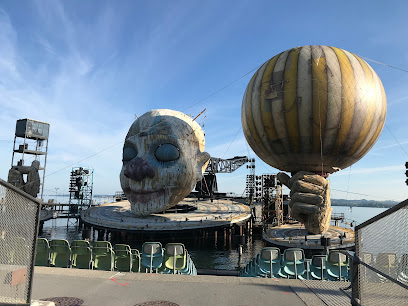
Pfänderbahn-Parkhaus
Discover the Pfänderbahn-Parkhaus: Your gateway to breathtaking hiking trails and stunning views in the heart of Bregenz.
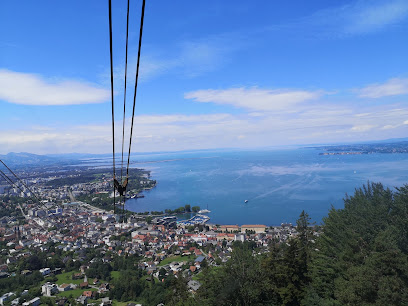
Seebühne Bregenz
Experience the magic of opera at Seebühne Bregenz, an extraordinary open-air venue on Lake Constance, where art meets nature in perfect harmony.
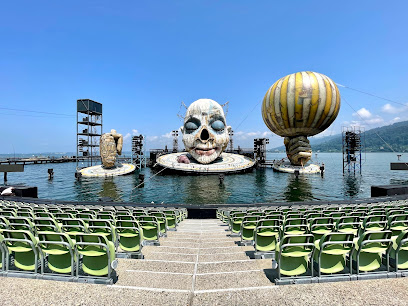
Pfänderbahn
Experience breathtaking views of Lake Constance and the Alps with a scenic ride on the Pfänderbahn cable car in Bregenz, Austria.
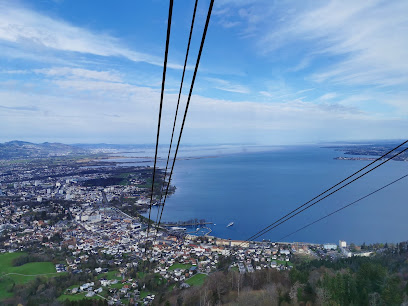
Kunsthaus Bregenz
Explore contemporary art in a stunning architectural masterpiece at Kunsthaus Bregenz, an unmissable attraction for culture lovers visiting Austria.
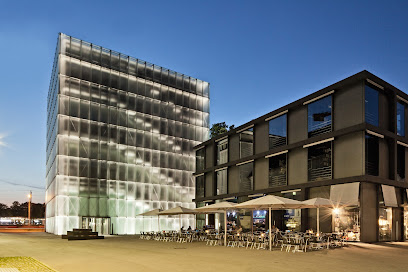
Bregenz Altstadt
Explore the historical charm of Bregenz Altstadt, where medieval architecture meets vibrant culture along the shores of Lake Constance.
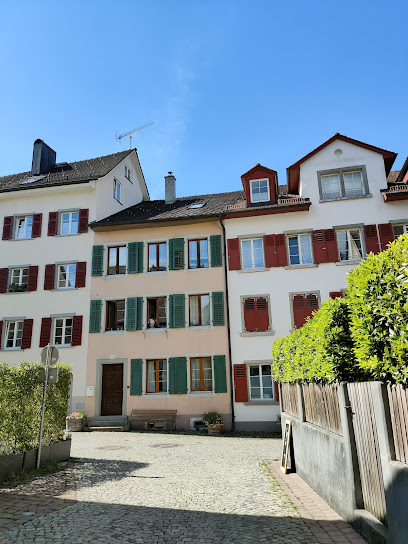
Vorarlberg Museum
Explore the cultural heart of Vorarlberg at the stunning Vorarlberg Museum in Bregenz, showcasing rich history and contemporary art.
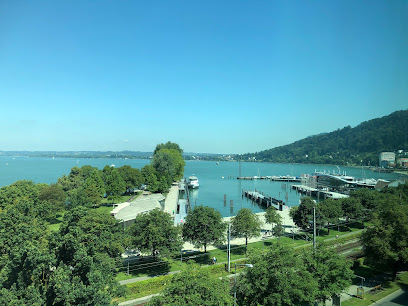
Fischersteg - Sunset Bar - Bregenz
Experience breathtaking sunsets at Fischersteg, Bregenz's premier sunset bar with stunning views and a vibrant atmosphere.
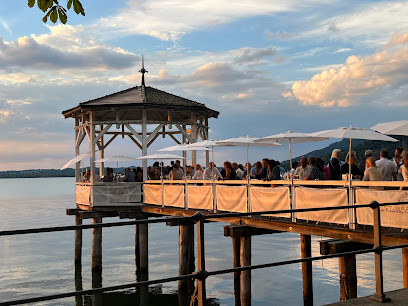
Martinsturm
Discover Martinsturm in Bregenz, a historical landmark offering stunning views, rich history, and a charming atmosphere for every tourist.
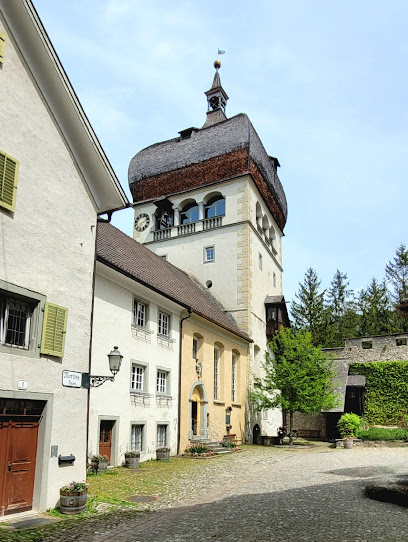
Oberstadt
Explore Oberstadt, Bregenz's historical landmark, where charming streets meet breathtaking views of Lake Constance and rich Austrian culture.
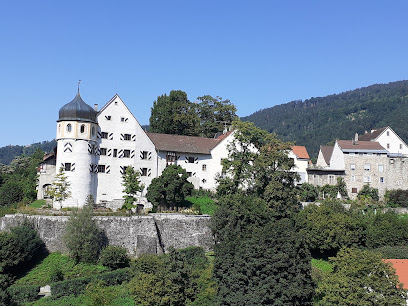
Bregenz Hafen
Discover the scenic beauty and cultural richness of Bregenz Hafen, the ideal gateway to Lake Constance's breathtaking landscapes.
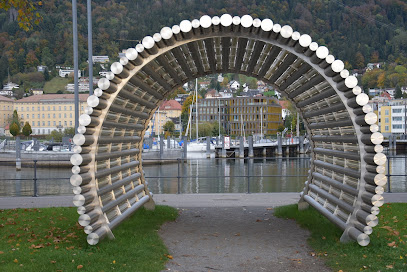
Schloss Wolfurt
Explore the stunning Schloss Wolfurt, a captivating castle in Austria showcasing rich history and breathtaking architecture amidst picturesque landscapes.
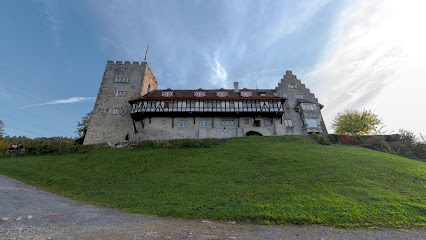
Bregenz Tourismus & Stadtmarketing GmbH
Explore Bregenz, a scenic gem on Lake Constance, known for its stunning views, rich culture, and unforgettable outdoor activities.
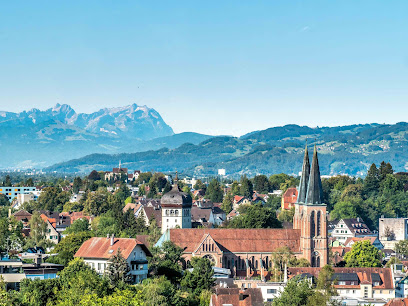
Bregenz Promenad (Corniche)
Explore the enchanting Bregenz Promenad, a scenic lakeside park in Austria perfect for leisurely strolls, picnics, and stunning sunset views.
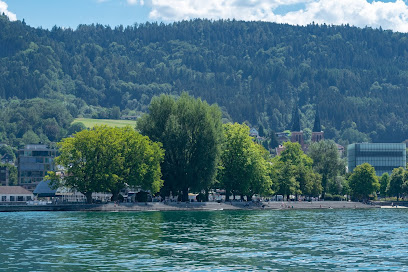
Burgruine Hohenbregenz
Unveil the rich history of Austria at Burgruine Hohenbregenz, where medieval charm meets stunning natural beauty.
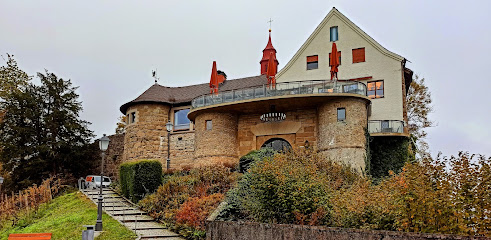
Unmissable attractions to see
Island Mainau
Discover the enchanting Island Mainau, a floral paradise in Lake Constance, perfect for nature lovers and families alike.
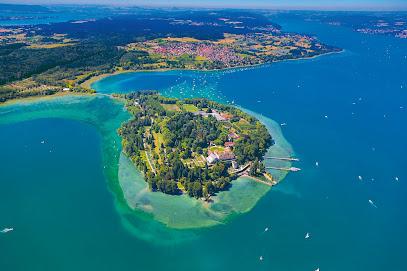
Affenberg Salem
Explore Affenberg Salem, a wildlife park where Barbary macaques roam freely amidst beautiful landscapes, offering fun and education for the whole family.

Pile Dwelling Museum
Explore the Pile Dwelling Museum, a UNESCO World Heritage Site showcasing ancient stilt houses and the rich history of prehistoric lake dwellers.
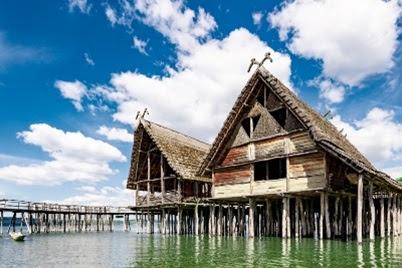
Zeppelin Museum Friedrichshafen
Immerse yourself in the rich history of air travel at the Zeppelin Museum Friedrichshafen, where innovation meets legacy on the shores of Lake Constance.
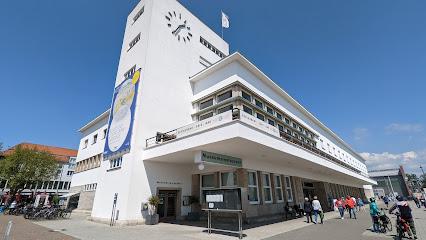
Meersburg Castle
Experience the rich history and stunning views at Meersburg Castle, a captivating tourist attraction on the shores of Lake Constance.
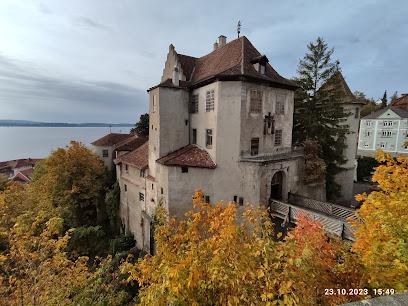
Dornier Museum
Discover the innovative legacy of aviation and aerospace technology at Dornier Museum, a must-visit destination in Friedrichshafen.
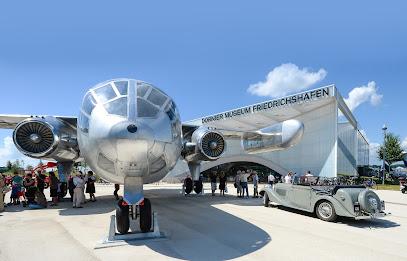
Lake Constance
Explore the breathtaking landscapes, charming towns, and rich culture around Lake Constance, a stunning destination in Europe.
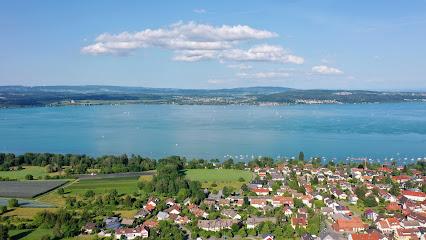
Zisterzienser-Priorat Kloster Birnau
Explore the tranquility and architectural splendor of Zisterzienser-Priorat Kloster Birnau, a Baroque monastery on the shores of Lake Constance.
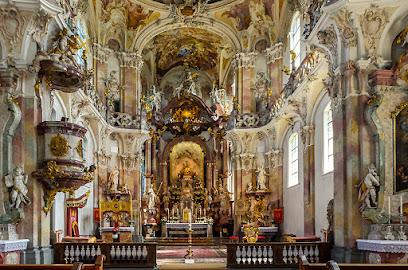
Uferpromenade Friedrichshafen
Explore Uferpromenade Friedrichshafen: A scenic lakeside escape with breathtaking views, vibrant gardens, and local culture along Lake Constance.
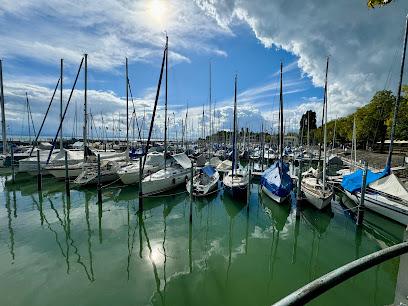
Münster Unserer Lieben Frau
Explore the historical and architectural marvel of Münster Unserer Lieben Frau in Konstanz, a captivating Catholic church rich in cultural heritage.
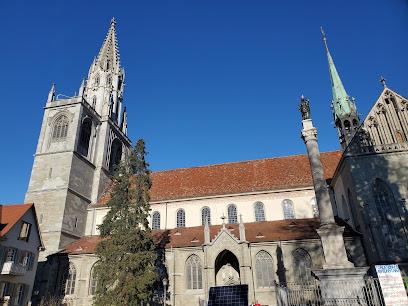
Abbey of Saint Gall
Discover the historical splendor of the Abbey of Saint Gall, a UNESCO World Heritage site with a stunning library and captivating architecture in the heart of St. Gallen.
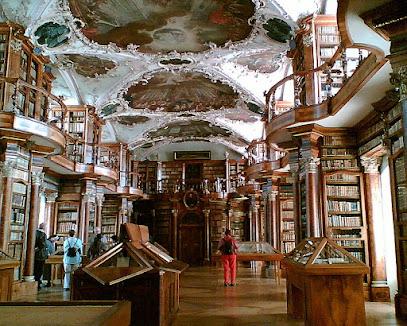
Stadtgarten
Explore the enchanting Stadtgarten in Konstanz, a tranquil urban oasis with stunning views of Lake Constance and vibrant gardens perfect for relaxation.
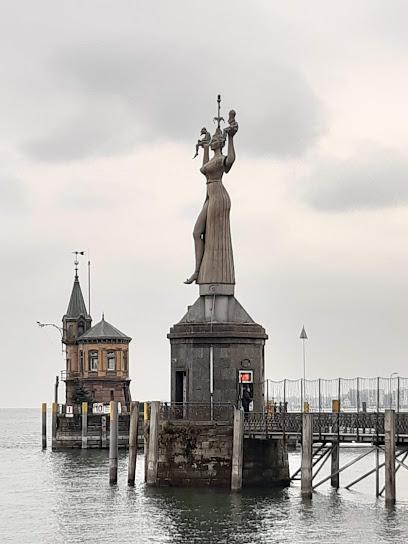
Seebühne Bregenz
Experience the magic of opera at Seebühne Bregenz - a breathtaking floating stage on Lake Constance showcasing world-class performances.
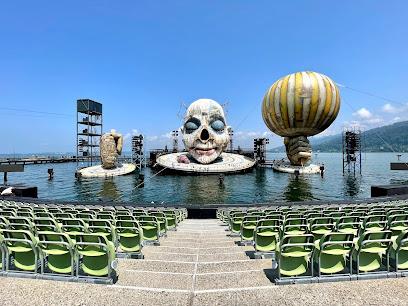
inatura natural spectacle Gmbh
Explore the enchanting inatura natural spectacle in Dornbirn, Austria, a museum dedicated to the wonders of nature and interactive learning.
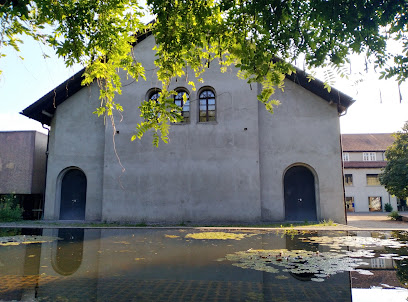
Appenzeller Schaukäserei
Explore the heart of Swiss cheese-making at Appenzeller Schaukäserei in Stein, where tradition meets flavor in a delightful culinary journey.
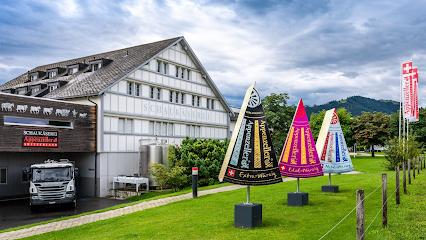
Essential places to dine
Wirtshaus am See
Experience authentic Austrian cuisine with stunning views at Wirtshaus am See, Bregenz's lakeside culinary treasure.
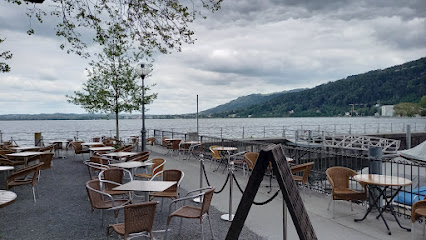
Viva Cantina Mexicana Bar
Discover authentic Mexican cuisine and vibrant cocktails at Viva Cantina Mexicana Bar in Bregenz - your gateway to a festive dining experience.
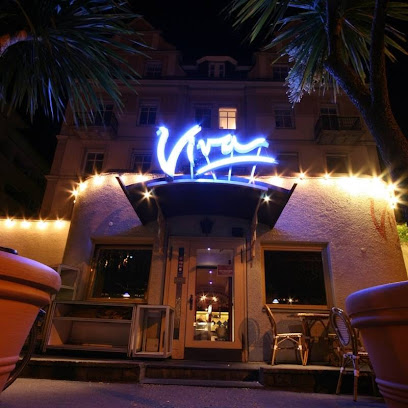
Poseidon - Griechische Spezialitäten
Experience authentic Greek cuisine at Poseidon in Bregenz - where Mediterranean flavors meet warm hospitality.
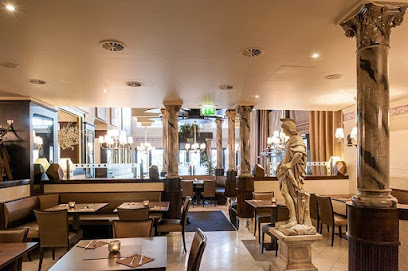
Isola Bella - Ristorante Pizzeria Gelateria
Experience authentic Italian cuisine at Isola Bella in Bregenz—where delicious pizza meets exquisite gelato.
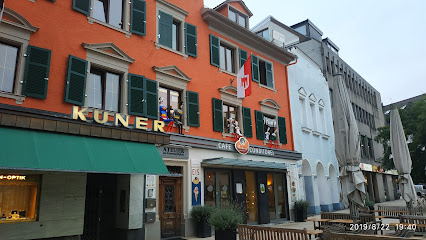
Restaurant Kornmesser
Experience exquisite dining at Restaurant Kornmesser in Bregenz, where local ingredients meet international culinary flair for an unforgettable meal.
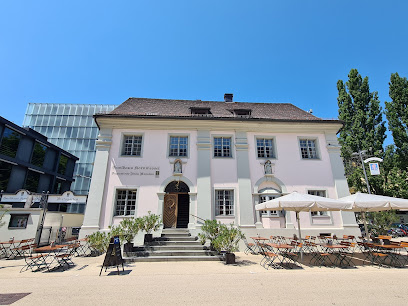
Pier69 Hafenrestaurant
Experience exquisite dining at Pier69 Hafenrestaurant in Bregenz—where stunning waterfront views meet exceptional local cuisine.
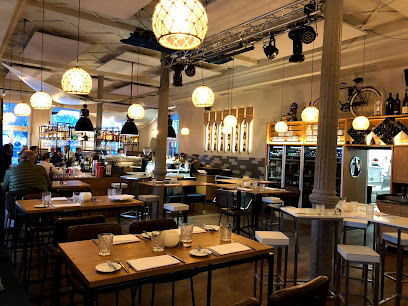
Gasthaus Goldener Hirschen
Experience authentic European cuisine and delightful local brews at Gasthaus Goldener Hirschen in Bregenz.
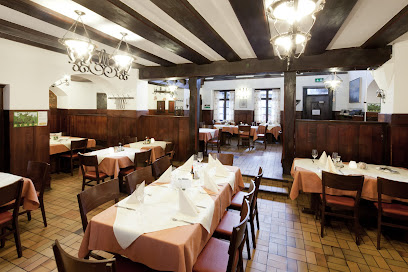
Burgrestaurant Gebhardsberg
Discover exquisite dining at Burgrestaurant Gebhardsberg with stunning views of Lake Constance and the Alps in Bregenz.
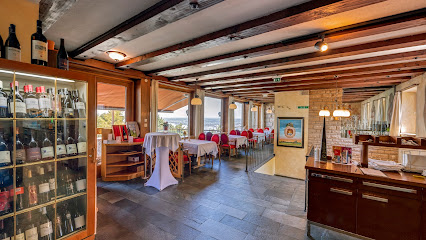
LAMM Hotel Restaurant Café
Discover the perfect blend of comfort and culinary excellence at LAMM Hotel Restaurant Café in Bregenz.
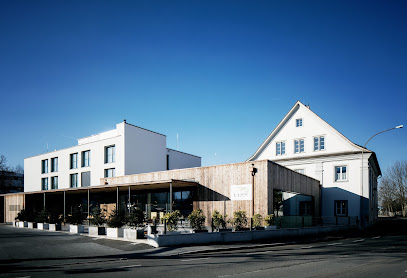
Falstaff - das Restaurant im Casino Bregenz
Experience exquisite fine dining at Falstaff in Casino Bregenz - where culinary art meets vibrant entertainment.
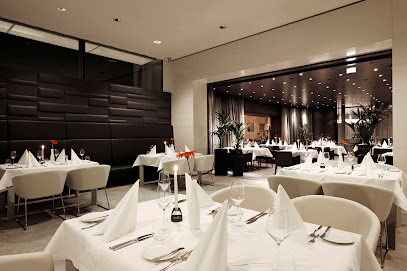
Tokyo
Explore Tokyo's culinary scene with diverse Japanese cuisine from sushi to ramen in Japan's vibrant capital.
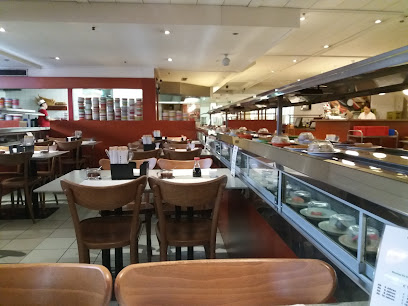
Pizzeria Zeppelin Ristorante
Savor authentic Italian pizza and delightful cuisine at Pizzeria Zeppelin Ristorante in Bregenz – a culinary gem by Lake Constance.
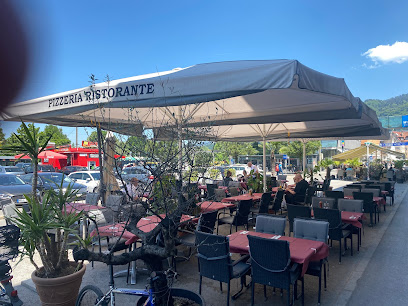
Miles Diner Bregenz
Discover comfort food at Miles Diner Bregenz - where classic American cuisine meets local charm in a cozy atmosphere.
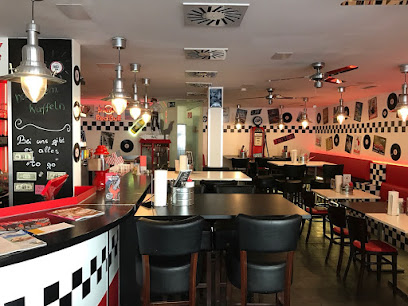
Pizzeria Ristorante DaGiuseppe
Discover the heart of Italy in Bregenz at Pizzeria Ristorante DaGiuseppe – where every slice tells a story.
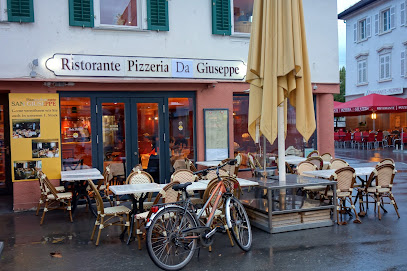
Restaurant Freischwimmer im Gösser Bregenz
Experience exquisite dining at Restaurant Freischwimmer im Gösser Bregenz, where stunning lakeside views meet delightful culinary creations.
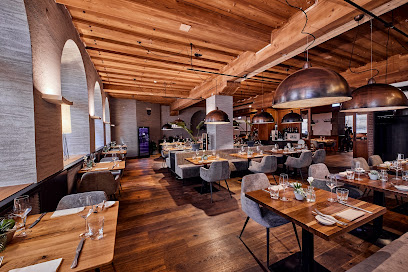
Markets, malls and hidden boutiques
GWL - Kaufhaus & mehr
Discover unparalleled shopping and dining at GWL - Kaufhaus & mehr in Bregenz, Austria, where retail meets culinary delights in a vibrant atmosphere.
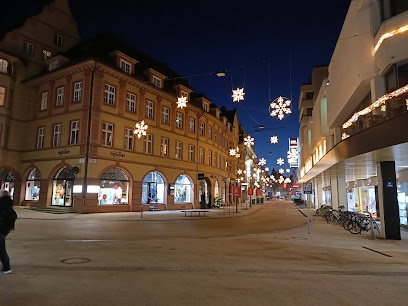
Wolford Outlet Bregenz
Experience luxury shopping at Wolford Outlet Bregenz, offering exquisite women's clothing and accessories at unbeatable outlet prices.
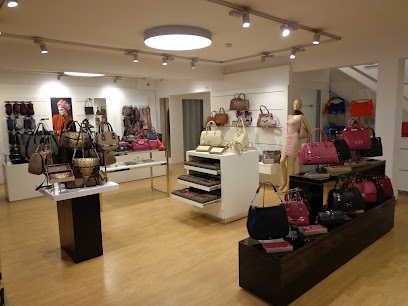
4D OUTFITTERS - Concept Store
Explore 4D OUTFITTERS in Bregenz for a unique shopping experience offering perfumes, clothing, furniture, and jewelry—all under one roof.
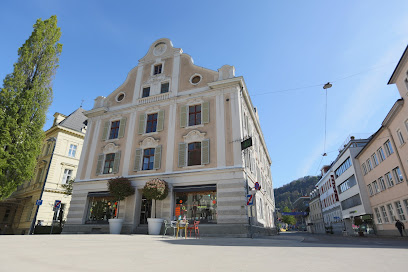
Pipeline Shop
Discover Pipeline Shop in Bregenz for top-notch skate gear and a vibrant skate culture experience.
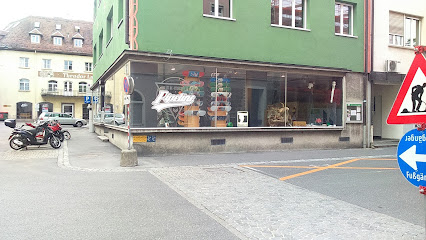
Siebensachen Alt und Neu
Explore Bregenz's hidden gem for secondhand treasures at Siebensachen Alt und Neu, where every item tells a story.
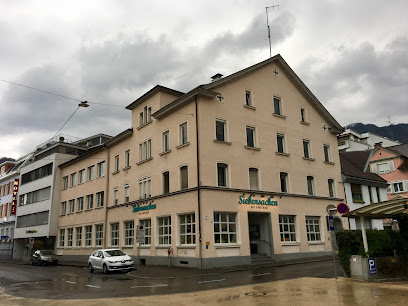
Blue Tomato Shop Bregenz
Explore the Blue Tomato Shop in Bregenz for top-notch snowboarding gear, skateboards, and outdoor apparel, perfect for your Alpine adventures.
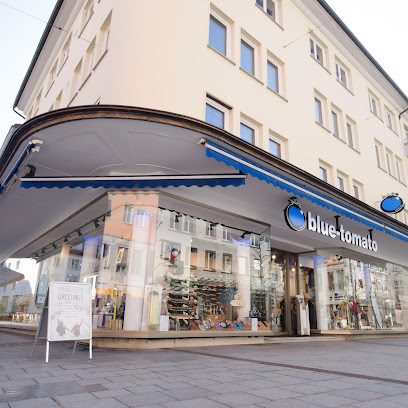
CBD STORES
Discover the diverse world of CBD products in the heart of Bregenz, Austria, with high-quality offerings and expert insights.
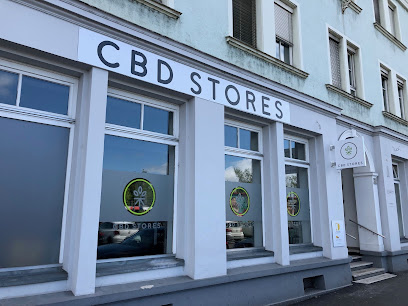
Modehaus Sagmeister
Explore unique fashion at Modehaus Sagmeister, the premier clothing store in Bregenz known for its quality selections and personalized service.
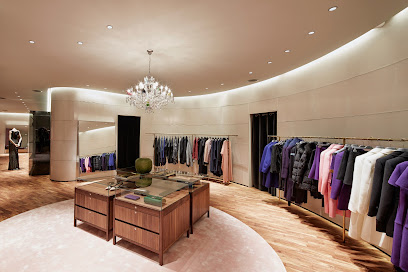
C&A
Discover the perfect blend of fashion and affordability at C&A in Bregenz, offering clothing for the whole family.
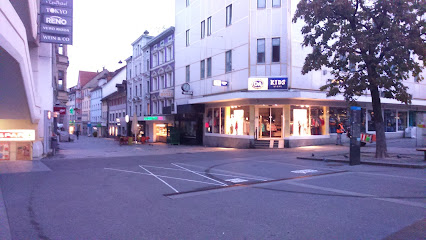
carla Vintage Store Bregenz
Explore a treasure trove of vintage fashion and eclectic finds at carla Vintage Store in Bregenz, where sustainability meets style.
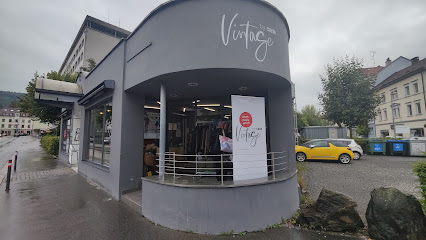
Schauraum - Boutique
Explore Bregenz's finest boutique for unique fashion and home decor, showcasing local design and creativity in a charming atmosphere.
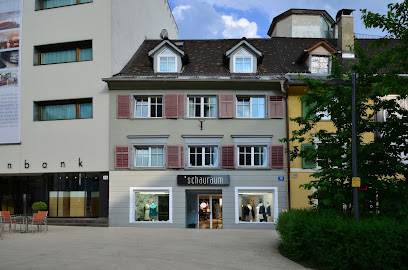
urbanerie - specials of urban lifestyle
Discover the heart of urban lifestyle at Urbanerie, Bregenz's premier destination for unique fashion, home decor, and culture.
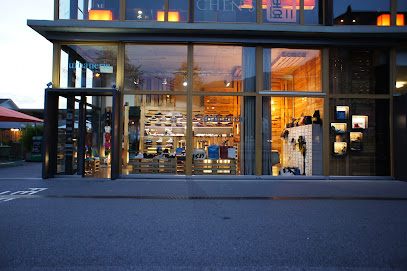
fesch LIVIN'
Explore Fesch LIVIN' in Bregenz for unique fashion, home decor, and local artisan treasures that embody the spirit of contemporary living.
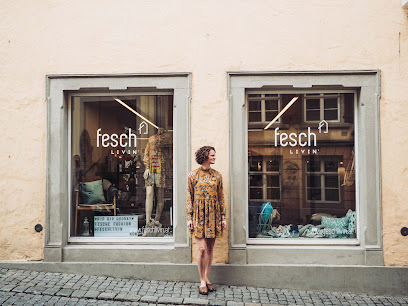
biostore
Explore Bregenz's Biostore for organic delights, gourmet deli selections, and biodynamic wines, a must-visit for health-conscious travelers.
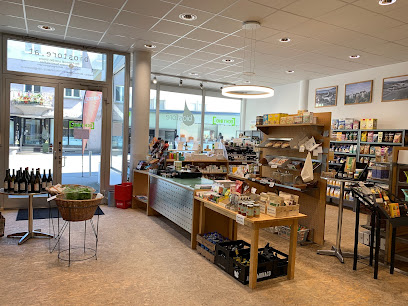
Triumph Lingerie - Bregenz
Discover exquisite lingerie at Triumph Lingerie in Bregenz, where elegance meets comfort in a beautiful shopping experience.
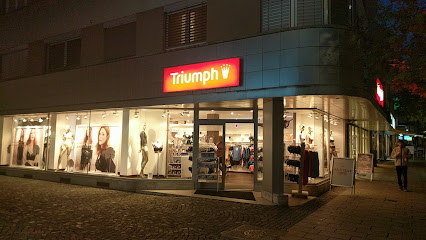
Essential bars & hidden hideouts
Viva Cantina Mexicana Bar
Savor exquisite Mexican dishes and signature cocktails at Bregenz's vibrant Viva Cantina Mexicana Bar, where every meal is a fiesta.
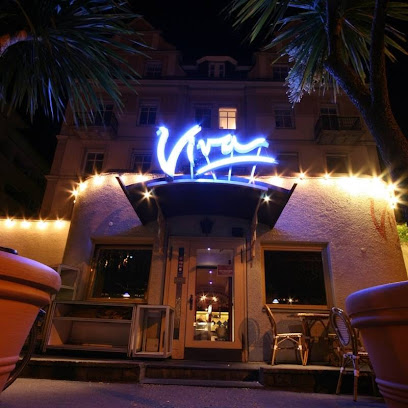
Beachbar Bregenz
Experience the vibrant nightlife at Beachbar Bregenz, where stunning lake views meet refreshing drinks and a lively atmosphere.
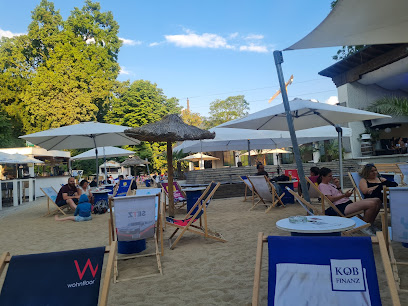
Cuba
Discover Cuba in Bregenz: A vibrant bar, café, and night club offering delicious cuisine and lively entertainment for every tourist.
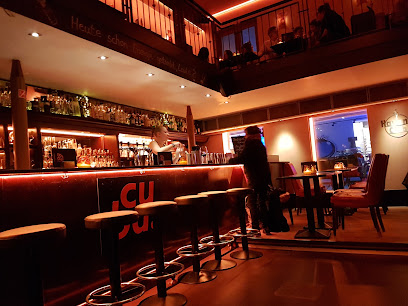
Restaurant Freischwimmer im Gösser Bregenz
Experience culinary delights at Restaurant Freischwimmer in Bregenz, where exquisite flavors meet stunning lake views in a vibrant atmosphere.
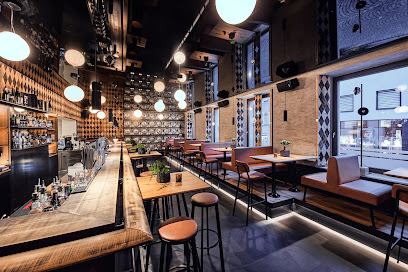
Lust Cafe- Bar
Discover the vibrant ambiance and delicious offerings of Lust Cafe-Bar in Bregenz, where every visit is a unique culinary adventure.
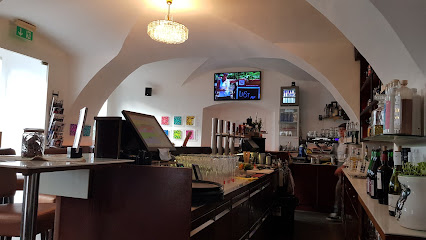
Fischersteg - Sunset Bar - Bregenz
Experience breathtaking sunsets at Fischersteg, Bregenz's premier bar by Lake Constance, offering great drinks and a vibrant atmosphere.
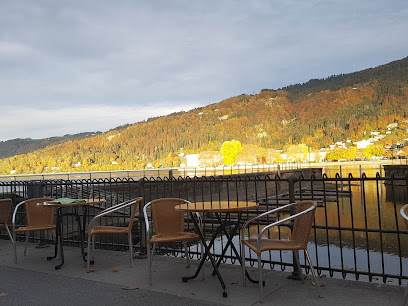
Paschanga 2.0
Discover the vibrant cocktail scene at Paschanga 2.0 in Bregenz, where creative drinks meet a lively atmosphere.
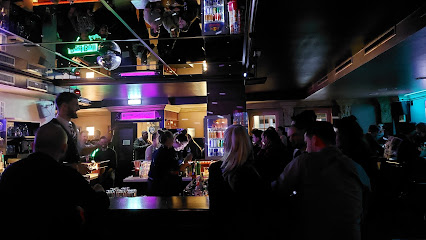
KREUZ BAR Bregenz
Discover the lively Kreuz Bar in Bregenz, a social hub offering an extensive drink menu and vibrant atmosphere perfect for unwinding and connecting.
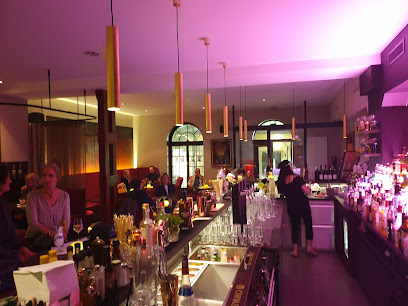
A. nice bar
Discover the vibrant nightlife of Bregenz at A. Nice Bar, where cocktails, laughter, and a warm atmosphere await you.
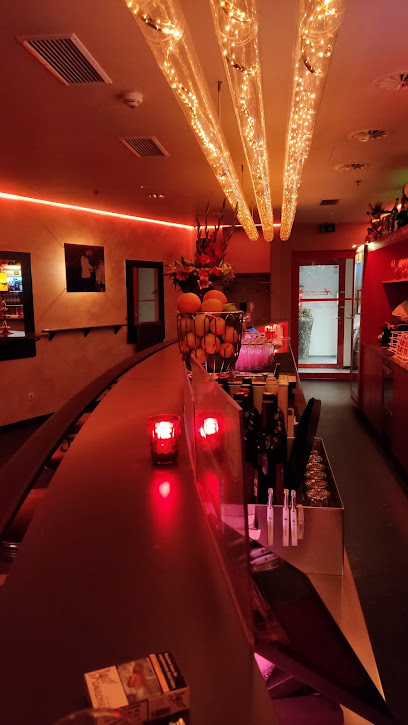
Ambiente Bar Pub Billard
Discover the lively nightlife of Bregenz at Ambiente Bar Pub Billard, where great drinks and billiards await in a cozy atmosphere.
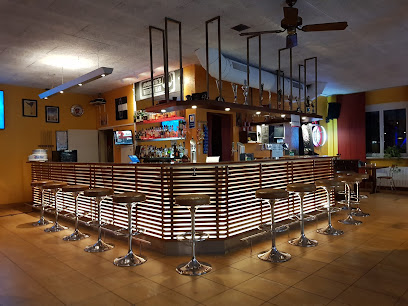
Prosecco Espresso Bar
Discover the vibrant atmosphere and exceptional beverage selection at Prosecco Espresso Bar in Bregenz, a true gem for tourists seeking relaxation.
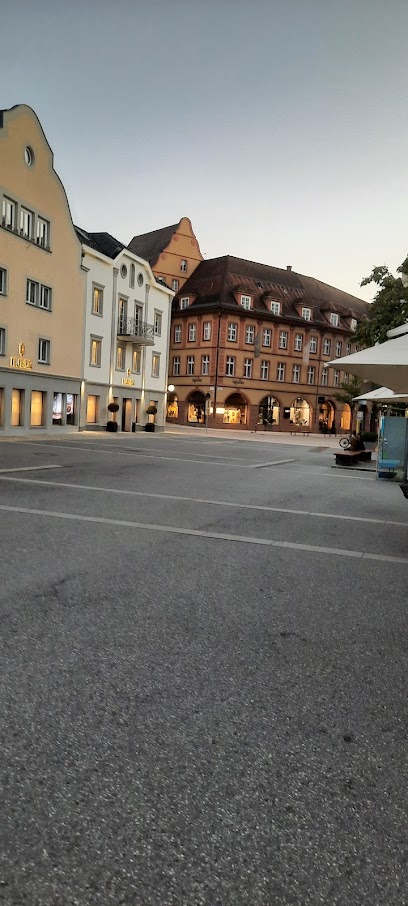
Vincent Bar
Discover the vibrant atmosphere and expertly crafted cocktails at Vincent Bar in Bregenz, the perfect spot for a night out.
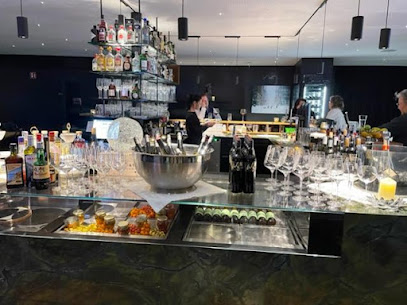
Cafe Bar 5er
Discover the cozy ambiance and delightful drinks at Cafe Bar 5er, a popular bar in Bregenz, Austria, perfect for unwinding after your adventures.
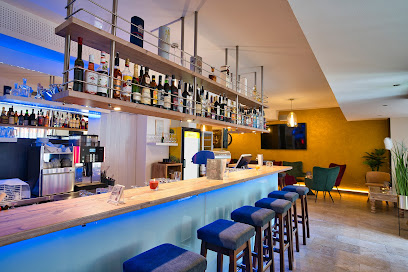
Low Bar Und So
Experience the lively spirit of Bregenz at Low Bar Und So, a top destination for cocktails and camaraderie in the heart of the city.
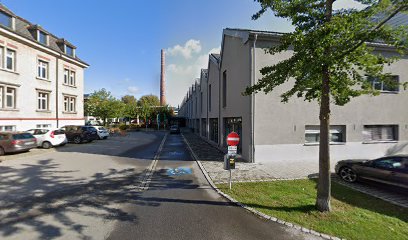
Travel experiences inspired by this city
Explore more travel diariesLocal Phrases
-
- HelloServus
[Zehr-voos] - GoodbyeAuf Wiedersehen
[Owf Vee-der-zayn] - YesJa
[Yah] - NoNein
[Nine] - Please/You're welcomeBitte
[Bit-teh] - Thank youDanke
[Dahn-keh] - Excuse me/SorryEntschuldigung
[Ent-shool-dee-goong] - How are you?Wie geht es dir?
[Vee geyt es deer] - Fine. And you?Gut. Und dir?
[Goot. Oond deer] - Do you speak English?Sprechen Sie Englisch?
[Shpre-khen zee Eng-leesh] - I don't understandIch verstehe nicht
[Eekh fair-shteh-eh neekt]
- HelloServus
-
- I'd like to see the menu, pleaseIch hätte gerne die Speisekarte, bitte
[Eekh hah-teh geyr-neh dee Shpahy-zeh-kahr-teh, bit-teh] - I don't eat meatIch esse kein Fleisch
[Eekh eh-seh kine Flysh] - Cheers!Prost!
[Prohst] - I would like to pay, pleaseIch möchte bitte bezahlen
[Eekh mohsh-teh bit-teh beh-tsah-len]
- I'd like to see the menu, pleaseIch hätte gerne die Speisekarte, bitte
-
- Help!Hilfe!
[Hil-feh] - Go away!Geh weg!
[Gay vehg] - Call the Police!Rufen Sie die Polizei!
[Roo-fen zee dee Po-lee-tsay] - Call a doctor!Rufen Sie einen Arzt!
[Roo-fen zee eye-nen Ar-tst] - I'm lostIch habe mich verirrt
[Eekh hah-beh meesh fair-eert] - I'm illIch bin krank
[Eekh been krunk]
- Help!Hilfe!
-
- I'd like to buy...Ich möchte kaufen...
[Eekh mohsh-teh kow-fen] - I'm just lookingIch schaue nur
[Eekh shao-eh noor] - How much is it?Wie viel kostet es?
[Vee feel koh-stet es] - That's too expensiveDas ist zu teuer
[Dahs eest tsoo toy-er] - Can you lower the price?Können Sie den Preis senken?
[Ker-nen zee den prees zehn-ken]
- I'd like to buy...Ich möchte kaufen...
-
- What time is it?Wie spät ist es?
[Vee shpayt eest es] - It's one o'clockEs ist ein Uhr
[Es eest iyn oor] - Half past (10)Halb zehn
[Halb tsehn] - MorningMorgen
[Mawr-gen] - AfternoonNachmittag
[Nahk-mih-tahk] - EveningAbend
[Ah-bent] - YesterdayGestern
[Ges-tern] - TodayHeute
[Hoy-teh] - TomorrowMorgen
[Mawr-gen] - 1Eins
[Ey-ns] - 2Zwei
[Tsvey] - 3Drei
[Dry] - 4Vier
[Feer] - 5Fünf
[Fewn-f] - 6Sechs
[Zeks] - 7Sieben
[Zee-ben] - 8Acht
[Akh-t] - 9Neun
[Noy-n] - 10Zehn
[Tsehn]
- What time is it?Wie spät ist es?
-
- Where's a/the...?Wo ist ein/der...?
[Voh eest iyn/dehr] - What's the address?Wie lautet die Adresse?
[Vee lowt-et dee Ah-dreh-ss] - Can you show me (on the map)?Können Sie mir das zeigen (auf der Karte)?
[Ker-nen zee meer dahs tsay-gen (owf dehr Kahr-teh)] - When's the next (bus)?Wann kommt der nächste (Bus)?
[Vahn kohmt dehr nekh-steh (Boos)] - A ticket (to ....)Eine Fahrkarte (nach ....)
[Eye-neh Fahr-kahr-teh (nahkh ....)]
- Where's a/the...?Wo ist ein/der...?
History of Bregenz
-
Bregenz's history dates back to prehistoric times, with evidence of settlements as early as 1500 BC. It became significant during Roman times when the Romans established a military camp known as Brigantium around 15 BC. This settlement later grew into a thriving town, with remnants of Roman walls and artifacts still visible today.
-
During the medieval period, Bregenz gained prominence as a strategic location. It was ruled by the Counts of Bregenz, a noble family that played a crucial role in the region's development. The medieval fortress, Burg Hohenbregenz, situated on Gebhardsberg, stands as a testament to this era.
-
In the 14th century, Bregenz came under the control of the Habsburgs, a powerful dynasty that shaped much of Central Europe's history. Under Habsburg rule, Bregenz flourished as a market town and became an important administrative center. The town's layout and architecture from this period reflect its growing significance.
-
The 19th century brought significant changes to Bregenz, including industrialization and the expansion of transport networks. The construction of the railway in 1872 connected Bregenz to major cities, boosting trade and tourism. This period also saw the development of cultural institutions, such as the opening of the Vorarlberg State Museum in 1857.
-
During World War II, Bregenz was affected by the conflict, with parts of the town being damaged by bombings. However, it quickly rebuilt in the post-war years, focusing on economic recovery and cultural revival. The Bregenz Festival, inaugurated in 1946, became a symbol of this renaissance, attracting international attention with its unique floating stage on Lake Constance.
-
The Bregenz Festival, established in 1946, has become one of Europe's most renowned cultural events. Held annually, the festival features opera, theater, and musical performances on the floating stage on Lake Constance. This event has significantly contributed to Bregenz's reputation as a cultural hub and tourist destination.
-
Today, Bregenz seamlessly blends its rich historical heritage with modern innovation. The city is known for its vibrant arts scene, historical architecture, and picturesque landscapes. Key landmarks include the Martinsturm, an iconic baroque tower, and the Kunsthaus Bregenz, a contemporary art museum. Bregenz continues to thrive as a dynamic city that honors its past while embracing the future.
Bregenz Essentials
-
Bregenz is accessible by various modes of transport. The closest major airport is Zurich Airport in Switzerland, about 120 kilometers away. From Zurich, you can take a train directly to Bregenz, which takes around 1.5 to 2 hours. Alternatively, you can fly into Munich Airport, approximately 180 kilometers away, and take a train to Bregenz, which takes around 2.5 to 3 hours. For those traveling by car, Bregenz is well-connected via the A14 motorway.
-
Bregenz is a compact city, and many attractions are within walking distance. Public transportation includes buses operated by Stadtwerke Bregenz, which are reliable and cover most parts of the city. Taxis are also available and can be hailed on the street or booked in advance. For exploring the surrounding areas, renting a bicycle or car can be a convenient option. The city is also well-connected by train, making it easy to visit nearby towns and cities.
-
The official currency in Austria is the Euro (EUR). Credit and debit cards are widely accepted in hotels, restaurants, and shops in Bregenz. However, it is advisable to carry some cash, especially when visiting smaller establishments or markets. ATMs are readily available throughout the city for cash withdrawals.
-
Bregenz is generally a safe city for tourists. However, like any travel destination, it is important to take standard precautions. Avoid walking alone at night in unfamiliar areas and keep an eye on your belongings in crowded places. There are no specific high-crime areas targeting tourists, but it is always best to stay vigilant and aware of your surroundings.
-
In case of an emergency, dial 112 for immediate assistance. Bregenz has several medical facilities, including the Landeskrankenhaus Bregenz (Bregenz State Hospital), which provides emergency care. Pharmacies are available for minor health issues and over-the-counter medications. It is recommended to have travel insurance that covers medical emergencies.
-
Fashion: Do dress smartly and appropriately, especially when visiting cultural sites or attending performances at the Bregenz Festival. Avoid overly casual or revealing clothing. Religion: Do show respect when visiting churches and religious sites. Cover your shoulders and knees, and speak in hushed tones. Public Transport: Do validate your ticket before boarding and offer your seat to elderly passengers. Don’t eat or drink on public transport. Greetings: Do greet people with a polite 'Grüß Gott' or 'Hallo.' A firm handshake is common. Eating & Drinking: Do try local specialties and enjoy meals leisurely. Don’t rush through meals, as dining is considered a social activity.
-
To experience Bregenz like a local, take a stroll along the picturesque Lake Constance promenade and enjoy the scenic views. Visit the local markets, such as the Wochenmarkt on Kornmarktplatz, to buy fresh produce and traditional Austrian goods. Engage with locals, as they are often friendly and willing to share stories about the city's history and culture. Don’t miss the Bregenz Festival, an annual performing arts festival held in July and August, famous for its stunning floating stage.
Trending Landmark in Bregenz
-
Festspielhaus Bregenz
-
Pfänderbahn-Parkhaus
-
Seebühne Bregenz
-
Pfänderbahn
-
Kunsthaus Bregenz
-
Bregenz Altstadt
-
Vorarlberg Museum
-
Fischersteg - Sunset Bar - Bregenz
-
Martinsturm
-
Oberstadt
-
Bregenz Hafen
-
Schloss Wolfurt
-
Bregenz Tourismus & Stadtmarketing GmbH
-
Bregenz Promenad (Corniche)
-
Burgruine Hohenbregenz
Nearby Cities to Bregenz
-
Things To Do in Dornbirn
-
Things To Do in Ruggell
-
Things To Do in Schellenberg
-
Things To Do in Mauren
-
Things To Do in Gamprin
-
Things To Do in Eschen
-
Things To Do in Schaan
-
Things To Do in Vaduz
-
Things To Do in Triesenberg
-
Things To Do in Balzers
-
Things To Do in St. Anton am Arlberg
-
Things To Do in Davos
-
Things To Do in Arosa
-
Things To Do in Zurich
-
Things To Do in St. Moritz













